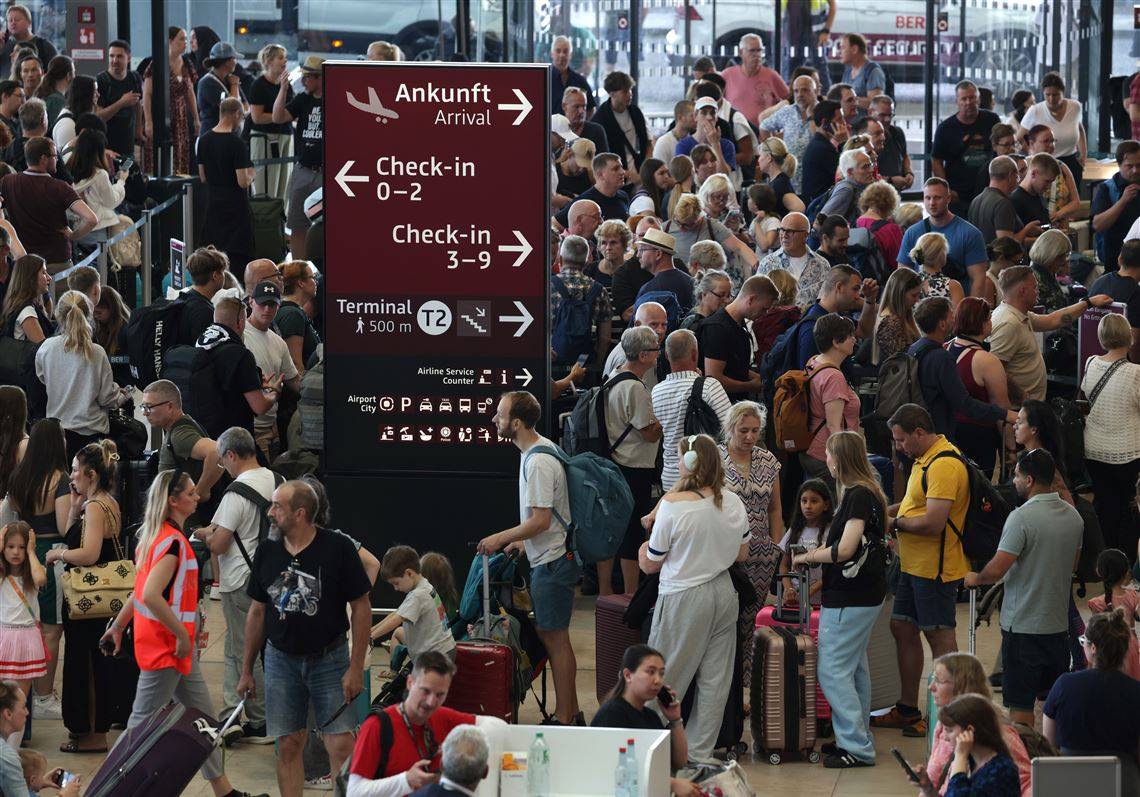Travel chaos: Know about the global Microsoft outage
A routine software update from cybersecurity firm CrowdStrike backfired triggering a global IT meltdown that crippled the travel industry.

Dubai: A routine software update from a cybersecurity company called CrowdStrike caused a major malfunction (meltdown) in computer systems around the world. This glitch caused significant disruptions, particularly in the travel industry, grounding flights, delaying trips, and causing chaos at airports worldwide.
Airlines, including major US carriers American Airlines, United Airlines, and Delta Air Lines, alongside international giants like Ryanair and Air France, all reported issues. Thousands of flights were canceled or delayed, leaving passengers frustrated and scrambling to rebook trips.
The CEO of CrowdStrike said in a statement obtained by CNN that the IT issue causing a global outage has been identified and a fix has been deployed.
Meanwhile, Microsoft said the “underlying cause” that led to the global outage “has been fixed,” but added that residual impact is still affecting some services.
The outage appeared to affect almost every major business sector in one way or another.
Airports brace for impact
Airports around the globe became battlegrounds of long lines, frustrated passengers, and logistical nightmares. Dubai Airport reported a return to normalcy, but many others remained in the throes of disruption.
Philadelphia International Airport witnessed scenes of "absolute insanity," according to a passenger quoted by CNN.
Europe's major hubs, including London's Gatwick and Heathrow Airports, also faced delays due to check-in and security system issues. The situation highlighted the travel industry's dependence on robust IT infrastructure, with even minor glitches causing significant disruptions.
What passengers need to know
Travelers caught in the crossfire face an uncertain path forward. Experts advise checking flight status before heading to the airport. Passengers stuck at airports should contact their airlines for rebooking options or compensation. Exploring alternative carriers or even switching to trains, if feasible, could be viable strategies.
Understanding your rights
Passenger rights vary depending on location. In the US, airlines are obligated to refund canceled flights, but additional compensation for delays or cancellations beyond their control is at their discretion. The European Union offers more robust protections, with passengers on flights to or from the EU entitled to compensation for delays exceeding five hours.
Familiarizing yourself with your airline's terms and conditions, as well as any travel insurance you may have, is crucial in navigating cancellations or disruptions.
A slow path to recovery
The return to normalcy for air travel is likely to take several days. Grounded airplanes and crew limitations due to working hour regulations pose significant challenges. Airlines are working to reroute passengers and clear the backlog, but patience is likely to be a virtue for travelers in the coming days.
Beyond airlines: Public transport feels the pinch
The tech meltdown wasn't confined to airports. Train systems in several regions also experienced disruptions. National Rail in the UK reported widespread IT issues, raising the possibility of last-minute cancellations. Train networks in Italy were temporarily suspended altogether, leaving passengers stranded in sweltering heat.
Public transport systems in major US cities like Washington D.C. and New York City also faced tech-related hiccups.
A lesson learned: The importance of resilience
The global tech outage serves as a stark reminder of the travel industry's vulnerability to technological glitches. As our reliance on complex IT systems grows, the need for robust backup plans and redundancy measures becomes paramount.
The coming days will be a test of the travel industry's resilience, with airlines and airports needing to work diligently to clear the backlog and minimize passenger inconvenience. For travelers, staying informed, being flexible, and understanding their rights will be key to navigating this challenging situation.
Source: CNN